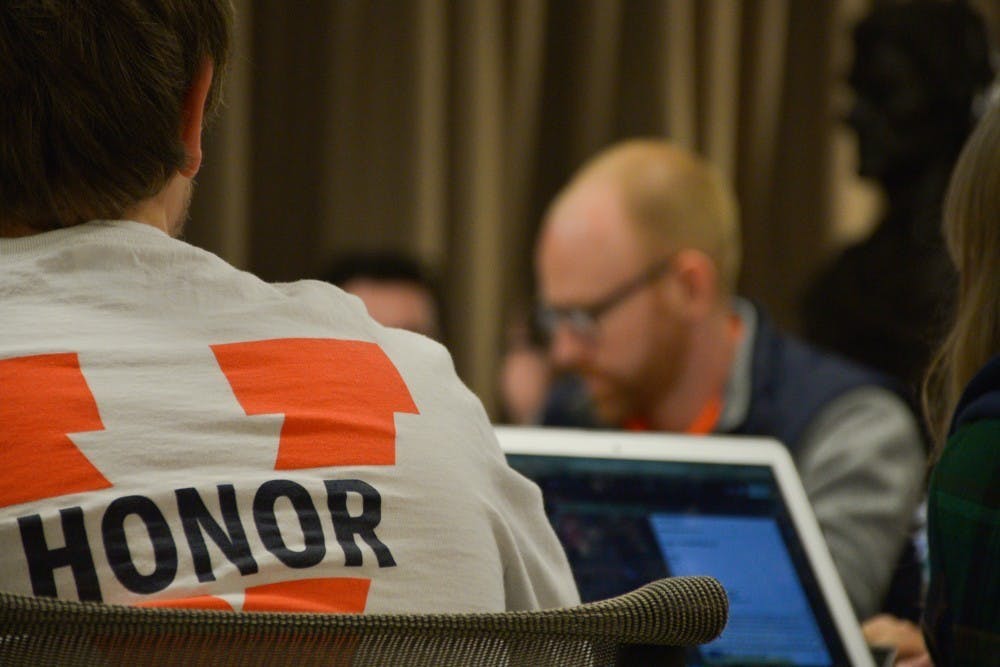The Honor Committee passed bylaw changes in 2018 allowing the Informed Retraction to cover multiple unrelated Honor offenses. According to then-Honor Chair Devin Rossin, it was “a huge expansion” of the right of reported students to file an IR, which allows students who admit guilt prior to a full investigation to remain at the University after a two-semester leave of absence.
Since the passage of the IR in 2013, the Committee had long debated its scope — and whether the IR should cover multiple unrelated offenses. The expansion of the IR brought it more in line with the Conscientious Retraction, which allows students to admit to an unlimited number of Honor offenses provided there is no existing report on a particular offense. Whatever the rehabilitative effects of the IR expansion, it reinforced the inadequacy of the IR as a policy, making the Honor system more arbitrary.
Last month, I published a column arguing against expulsion as a penalty for Honor convictions. My argument was twofold — that the IR and CR ensure students who have committed Honor offenses already remain at the University, and that expulsion would deter students and faculty from reporting even under a multiple-sanction system.
In response to that column, Opinion Columnist Noah Strike addressed the first of my arguments, defending the IR while arguing for a multiple-sanction system. His response propounds the role of forgiveness in the IR, but it perpetuates a glaring misnomer — that offenses covered by an IR are singular — “the error” or “the mistake.”
Most IRs only cover single acts, but because of the 2018 bylaw changes, others cover multiple offenses — as long as the student reports the offenses “with specificity,” an IR can include any offenses that occur prior to the submission of an IR form. The IR is indeed forgiving, but it increases the incentive for reported students to waive due process rights while allowing different IRs to cover substantially different offenses. Although Rossin once defended the IR expansion as “fundamentally more fair,” there is nothing fair about a policy so inconsistent.
The constitutional limit of one IR per student ensures the IR’s inconsistency. Despite the Honor bylaws’ two-year statute of limitations, IRs from upperclassmen can cover more offenses than IRs from first-years. For some students, the IR is a guilty plea that covers any crimes a defendant has ever committed. For others, the IR is a guilty plea that covers only one offense. The IR makes rehabilitation — and deterrence — depend on timing.
As students first debated whether to implement the IR, two parallel justifications emerged. One was procedural — with the IR, guilty students would have less incentive to lie during the adjudication process — and the other was moral — the IR would introduce forgiveness into a system previously without it. Only the procedural argument explains why the IR occurs before, not after, a hearing and why the current system does not forgive accused or convicted students. If the honor system upholds forgiveness, it should extend it at any point in the Honor process.
When the Committee last offered students a constitutional amendment on the single sanction, several representatives published an op-ed in The Cavalier Daily explaining what was on the ballot. The op-ed noted that transitioning “to a multiple-sanction system would require lengthy and dramatic by-law changes across the board,” including to the IR. The IR might not survive a move to a multiple-sanction system, but that does not absolve students of addressing its current inconsistencies. Although the IR has laudably decreased the rate of expulsion, that does not make it just. Honor must move to a system that considers separate offenses separately — without incentivizing students to waive due process rights, and without assigning vastly different penalties based on the timing of a properly reported offense.
Adam Grim in an Opinion Columnist for The Cavalier Daily. He can be reached at opinion@cavalierdaily.com.
The opinions expressed in this column are not necessarily those of The Cavalier Daily. Columns represent the views of the authors alone.







